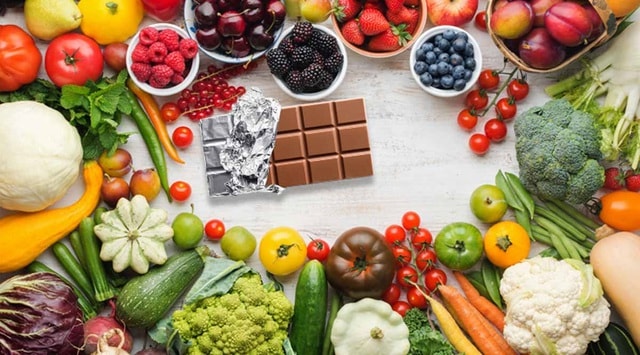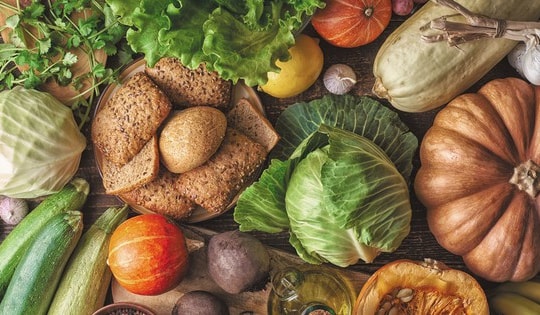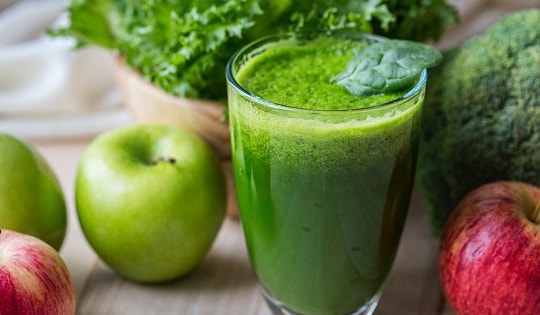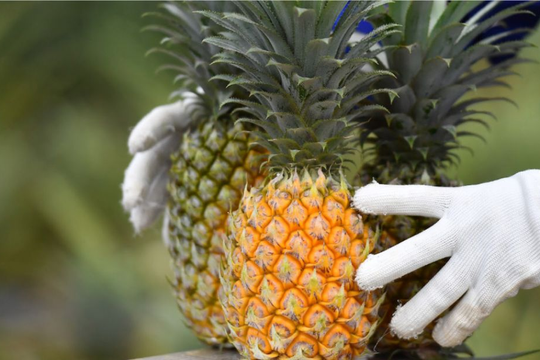New research: Eating lots of fruits and vegetables slows down memory loss
Eating lots of fruits and vegetables, drinking tea is a simple way to maintain brain health. According to a new study, flavonols - antioxidants commonly found in vegetables, fruits, tea, etc. can slow down the process of memory loss. In addition, flavonols also help prevent cancer and protect the heart.
According to research published in the journal Neurology (American Academy of Neurology), people who eat foods rich in flavonols over a decade have less cognitive decline.
"Certain foods can slow cognitive decline," says Dr. Thomas Holland of Rush University Medical Center in Chicago. "Simple ways like eating more vegetables, fruits, and drinking tea can help you maintain better brain health."

"Flavonols, which are abundant in vegetables, fruits, and tea, protect cells, including neurons," says David Katz, MD, a nutritionist, preventative medicine, and lifestyle expert. "Flavonols are important for the brain because they are good for each organ in the body and the body as a whole."
Plants contain more than 5,000 flavonoid compounds. In nature, these compounds play important roles in cell growth, resistance to environmental stress, and attracting pollinators.
Flavonols, a typical flavonoid, have been shown to reduce inflammation in both human and animal experiments. Flavonols are rich sources of antioxidants that help fight free radicals, preventing inflammation - the root cause of chronic diseases.
Vegetables and fruits containing the most Flavonols
Flavonols prevent cancer:
Quercetin, one of the most common flavonol compounds, has been shown to help reduce the risk of colon cancer and several other types of cancer.
Onions contain the most quercetin, vegetables containing quercetin include cauliflower, blueberries, kale, leeks, spinach and strawberries.

Another common flavonol compound is kaempferol, which has the ability to inhibit the growth of cancer cells while protecting normal cells.
The best sources of kaempferol are spinach, kale, and other leafy greens, especially herbs like chives, dill, and tarragon. Onions, asparagus, and berries are also good sources of kaempferol.
Flavonols control blood sugar, reduce the risk of Alzheimer's, and protect the heart:
Another flavonol that is good for health is myricetin, which studies show helps control blood sugar and reduce pain - a protein that is a marker for Alzheimer's disease and some other dementias.
High levels of myricetin are found in spinach and strawberries. Other good sources of myricetin include honey, blackcurrants, grapes, and some other fruits. Vegetables, nuts, and tea are also rich sources of myricetin.
Another group of flavonols, Isorhamnetin, may protect against cardiovascular and neurovascular diseases in addition to its anti-tumor and anti-inflammatory properties. Food sources rich in Isorhamnetin include pears, olive oil, red wine, and tomatoes.
According to the Linus Pauling Institute (USA), randomized trials show the benefits of flavonol compounds in controlling blood sugar in type 2 diabetes and improving cardiovascular health.





